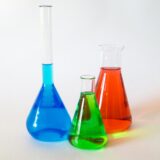U.S. EPA seeks public comment on registration of isobutanol as gasoline additive
The U.S. Environmental Protection Agency (EPA) is seeking public comment on the use of isobutanol as a gasoline additive. Butamax Advanced Biofuels, LLC, which is a joint venture between BP and DuPont, has submitted an application pursuant to 40 CFR part 79 of the Code of Federal Regulations, Registration of Fuels and Fuel Additives, for the registration of isobutanol as a gasoline additive at up to 16 volume percent. The EPA has set the public comment period to end on April 30, 2018.
Section 211(b) of the Clean Air Act requires the EPA to register a fuel or fuel additive once all the applicable registration requirements have been met by the manufacturer. Successful registration would pave the way for isobutanol to be introduced into general commerce.
The EPA said that the information submitted by Butamax would likely satisfy the applicable registration requirements.
Recent testing on the use of gasoline-isobutanol blended fuels shows that isobutanol blended fuels generally do not significantly affect oxides of nitrogen (NOX), carbon monoxide (CO), or non-methane organic gas (NMOG) emissions, according to a notice filed by the EPA on March 29, 2018, in the U.S. Federal Register.
“Due to the potential for the widespread introduction of isobutanol into commerce, we are taking steps to make the public aware of the likelihood of this registration. We are seeking public comment regarding any issues we should take into consideration for this registration and any supplemental actions we should consider under the Clean Air Act to further protect public health and welfare.”
The notice explains that current fuel regulations specify that a company with total annual sales of less than USD 50 million qualifies as a small business and is exempt, in certain instances, from applicable testing requirements. The EPA said that it has previously registered isobutanol as a fuel additive for companies that qualify under this provision as a small business.
Fuel and fuel additive manufacturers with total annual sales of USD 50 million or more, however, do not qualify as small businesses and are prohibited from registering the use of isobutanol produced by small businesses. Rather, these companies must comply with all applicable registration requirements, including health effects testing.
Gasoline producers typically have sales greater than USD 50 million per year and would need to register isobutanol as an additive to their gasoline if they want to use it. Therefore, a gasoline manufacturer cannot rely on the registration of a small additive manufacturer as a means of complying with fuel registration requirements under 40 CFR part 79. The agency has yet to grant a registration request of isobutanol as a gasoline additive by a gasoline manufacturer. This has resulted in limiting isobutanol to blending at terminals by parties that are not gasoline manufacturers, which is the reason why isobutanol has not yet been introduced into commerce at any significant volume. Butamax must conduct Tier 1 and either Tier 2 or Alternative Tier 2 health effects testing as part of the fuel registration process.
Butamax Advanced Biofuels, based in Wilmington, Del., U.S.A., has developed an innovative bio-isobutanol production technology offering a low-cost, high-value drop-in biofuel for global transportation fuels supply. Butamax technology is designed to convert the sugars from various biomass feedstocks, including corn and sugarcane, into bio-isobutanol using existing biofuel production facilities. In April 2017, the company announced the acquisition of Nesika Energy, LLC and its state-of-the-art ethanol facility in Scandia, Kan., U.S.A., to produce bio-isobutanol.
Gevo, Inc. and Butamax entered into worldwide patent cross-license and settlement agreements, ending a patent dispute related to technologies for the production of bio-based isobutanol in August 2015. The settlement ended all of the lawsuits between the two parties and created a new relationship between them, aimed at leveraging each other’s strengths and accelerating development of competitive supply for bio-based isobutanol.










